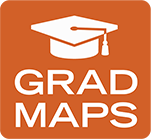| |
Feb 02, 2026
|
|
|
|
|
2024-25 Catalog ARCHIVED CATALOG: Content may no longer be accurate.
Physics Teaching (BS)
|
|
 Return to: College of Science Return to: College of Science
- Program Prerequisite: Physics Teaching majors must meet the Teacher Education admission and licensure requirements (see Teacher Education Department).
- Minor: Not Required.
- Grade Requirements: An overall GPA of 2.00 is required in courses required for this major. Also refer to the general grade requirements for graduation under General Requirements.
- Credit Hour Requirements: A total of 120 semester credit hours is required for graduation; 45 hours are required within the major, plus the credits required by the Teacher Education department. Forty upper-division credit hours are required (courses numbered 3000 and above).
- Program Code: 6020BS
- CIPC: 131329
Advisement
Physics Teaching majors are strongly encouraged to meet with the chair at least annually for course and program advisement. Call 801-626-6163 for more information or to schedule an appointment. Physics Teaching majors are also encouraged to meet with a Jerry and Vickie Moyes College of Education advisor (call 801-626-6269). (Also refer to the Department Advisor Referral List.)
 Use Grad MAPs to plan your degree Use Grad MAPs to plan your degree
Admissions Requirements
Declare your program of study . Teaching majors must meet the Teacher Education admission and licensure requirements (see Department of Teacher Education
General Education
Refer to Degree Requirements for Bachelor of Science requirements. The following courses required for the Physics and Applied Physics majors will satisfy general education requirements: PHYS 1040 PS , PHYS 2210 PS , and MATH 1210 .
Program Learning Outcomes
- Presentation skills. Physics majors should be able to express (orally and in writing) their understanding of core physical principles, the results of experiments, and their analysis of physical problems.
- Laboratory skills. Physics majors should be competent experimentalists. They should be able to design and set up an experiment, collect and analyze data, identify sources of error, and interpret their result and connect it to related areas of physics.
- Computer skills. Physics majors should be competent users of basic software, such as word processing, spreadsheet, and graphing programs. They should also have an understanding of the fundamental aspects of a programming and/or computer algebra language (Fortran, C++, Mathematica, etc.).
- Problem-solving skills. Physics majors should be competent problem-solvers. They should be able to identify the essential aspects of a problem and formulate a strategy for solving the problem. They should be able to estimate the solution to a problem, apply appropriate techniques to arrive at a solution, test the correctness of their solution, interpret their result and connect it to related areas of physics.
- Physics majors should be adequately trained to apply their physics experience and knowledge to analyze new situations.
- All physics students (majors, minors, support, and Gen Ed students) should understand the nature of science, as assessed by questionnaires, interviews, and student focus groups.
- General Education students should understand several core concepts of physics.
- Physics Teaching majors and Elementary Teaching majors should have an appropriate knowledge of physics and a variety of teaching strategies to accommodate the multiple learning styles of their students.
|
Physics Teaching Major Course Requirements for BS Degree
Physics Courses Required (25 credit hours)
Physics Electives (9 credit hours)
Select nine credit hours in approved Physics classes (courses numbered 2300 and above, excluding other explicit course requirements). Support Courses Required (11 credit hours)
Note:
Students must also complete the Teacher Education Licensure Program. |
 Return to: College of Science Return to: College of Science
|
|